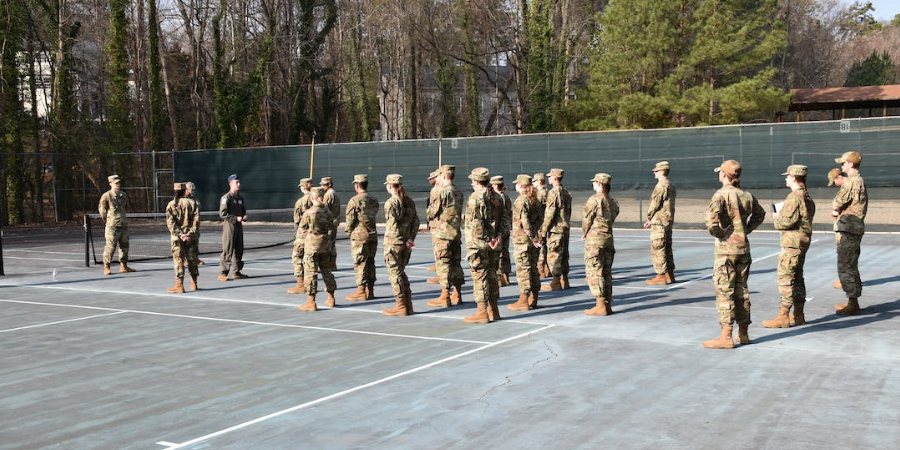The Impact and Potential Expansion of the JROTC Program
Under the National Defense Authorization Act for Fiscal Year 2024 (FY2024 NDAA) both the House and Senate approved various amendments concerning Junior Reserve Officers’ Training (JROTC) authorities, focusing on program structure and accountability.
The Impact of JROTC
JROTC is a Department of Defense (DOD) program involving around 500,000 students in over 3,400 secondary schools, administered by the Army, Navy, and Air Force. Established in 1916, JROTC is one of the largest character development and citizenship programs for youth in the world. A 2023 RAND Corporation study linked JROTC participation with higher graduation rates, higher rates of attendance, and lower disciplinary actions. JROTC participants are more likely to enlist in the military, complete enlistment terms, and pursue STEM-related careers. The National Commission on Military, National, and Public Service suggested expanding JROTC to enhance civic education and military interest, potentially addressing recruiting shortfalls.
Current Pay Structure
Currently, military departments subsidize JROTC instructors by reimbursing the host Local Educational Agency (LEA) for part of their salary. The Minimum Instructor Pay (MIP) is calculated based on the difference between the active duty pay the instructor would receive if recalled and their retired pay entitlement, and LEAs are obligated to pay instructors at least this amount. The military service is obligated to reimburse the LEA for up to half of the MIP. Changes in the military retirement system could increase DOD’s costs under this system.
Legislative Changes and the New Pay Structure
The FY2024 NDAA mandates a new “joint service instructor pay scale” (JSIPS) system in which the DOD subsidizes at least half of the JSIPS salary, and the LEA covers the rest. The Secretary may increase this payment in certain circumstances, such as when the institution is in an educationally and economically deprived area, and the Secretary deems it in the national interest. Payments are made from appropriated funds, and successful applicants may be required to transfer to the Individual Ready Reserve.
The legislation gives discretionary authority to the DOD for establishing JSIPS parameters. The final bill includes an amendment preventing DOD from reducing the total compensation of JROTC instructors or administrators employed as of FY2024. The new pay scale has not yet been published, but HR Services will notify members of its availability, once released. In the meantime, districts should continue to review MIPs for their instructors to ensure they’re compensating at the appropriate required rates.
More information on the current pay practices can be found in the HR Services Resource Library – JROTC Pay Practices (member login required).
The bill also grants the Secretary of the military department the authority to permit qualified institutions to hire administrators and instructors for the program. This includes:
- Retired officers and noncommissioned officers with approved qualifications who seek employment
- Individuals separated with an honorable discharge within the last 5 years with at least 8 years of service
- Active participating members of the selected reserve who have not yet reached retirement eligibility and who have approval from the Secretary and the institution concerned
Strategic Advancements
The evaluation of the JROTC program highlights its significant impact on student outcomes, including increased graduation rates, attendance, and a propensity for pursuing STEM-related careers. As JROTC continues to play a crucial role in shaping the educational and career paths of students, these legislative changes represent a strategic step toward maximizing its positive impact and promoting the program's growth.

Ashley Broughton
Ashley Broughton joined HR Services in 2023 as an HR and compensation consultant. She has dedicated the last 10 years to supporting Texas public education and its various business operations.
Broughton earned a bachelor’s degree in business from the University of Phoenix and a master’s degree in business administration from Prairie View A&M University.
HR Services

Subscribe to HRX
Stay up to date with all the latest HR news and trends by joining the HRX mailing list!





